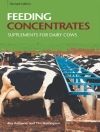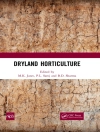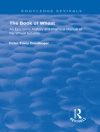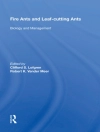This Palgrave Pivot investigates barriers to international agricultural trade caused by a lack of standardized maximum residue levels (MRL) for pesticides. Given the preponderance of pesticide use in food production and the increasing disruptions to trade, a better understanding of the reasons for the decline in international cooperation, the trade impacts, and potential solutions is critical. This volume will contribute to that understanding. Through an analysis of the economics of MRL regulatory harmonization, select case studies, and a look at incentives and disincentives for government agencies and regulators, the authors move the conversation beyond the theoretical, and into current practices and advice for creating workable solutions. This Pivot is a valuable resource for those concerned with food security, trade policy, agricultural production and export supply chains, as well as those interested in broader issues related to science policy and societal trends.
สารบัญ
1. Why Maximum Residue Limits for Pesticides are an Important International Issue.- 2. The Importance of Trade for Food Security.- 3. Incentives, or Not, for Governments to Remove Asynchronous MRLs as Trade Barriers.- 4. The Economics of International Harmonization of MRLs.- 5. Previous Examinations of MRLs.- 6. Case Studies of Trade Problems Related to MRLs.- 7. What Do Administrators Say?.- 8. Institutional Initiatives to Deal with Internationally Asynchronous MRLs.- 9. The Way Forward.
เกี่ยวกับผู้แต่ง
May T. Yeung is Professional Affiliate at the University of Saskatchewan, Canada.
William A. Kerr is University Distinguished Professor at the University of Saskatchewan, Canada.
Blair Coomber is former Director General of International Trade Policy at Agriculture and Agrifood Canada.
Matthew Lantz is Vice President of Global Access at Bryant Christie Inc., USA.
Alyse Mc Connell is Manager of International Regulatory Affairs at Bryant Christie Inc., USA.












